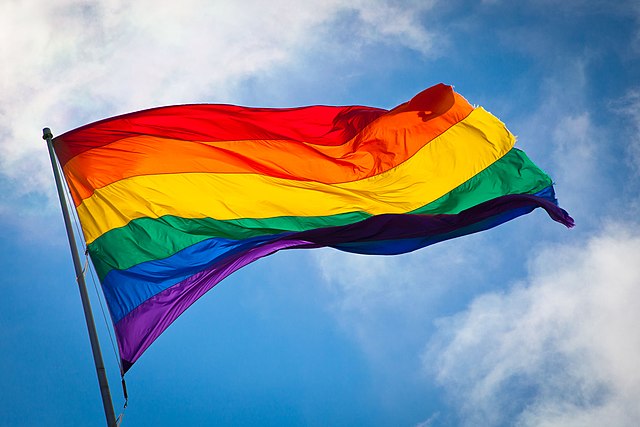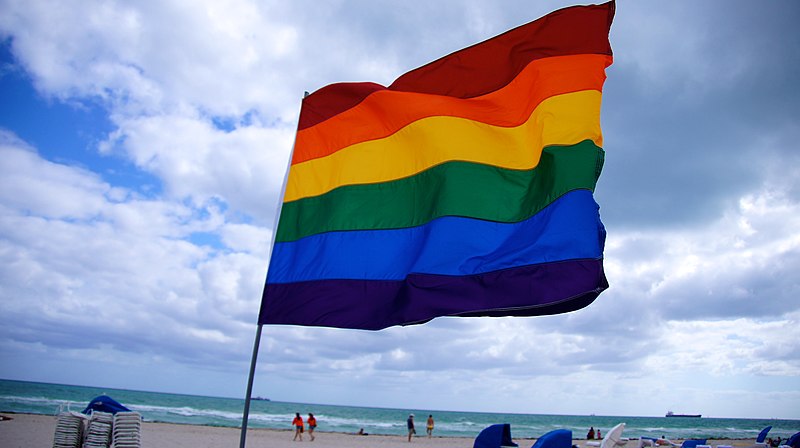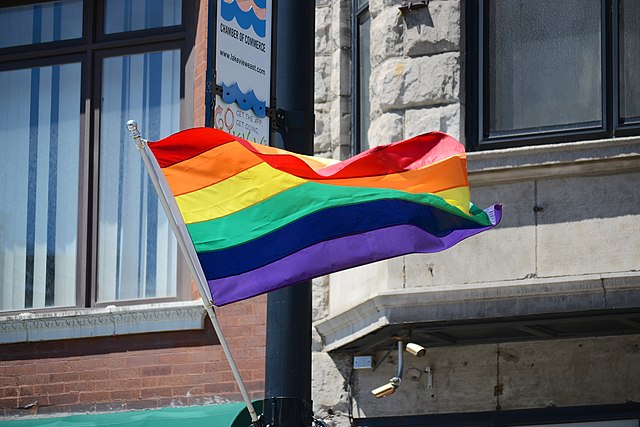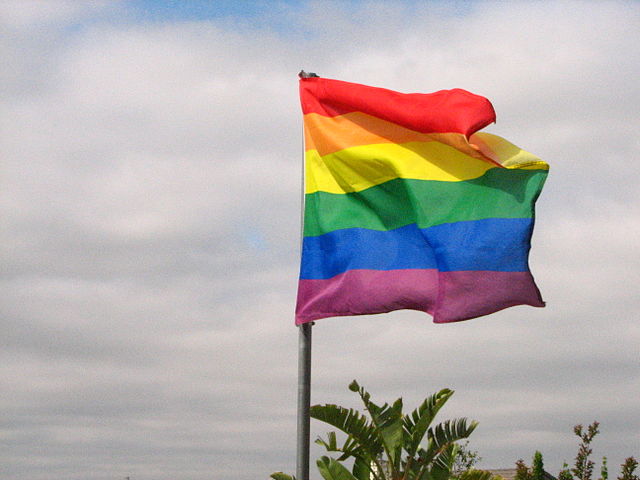
Thammasat University students interested in science, technology, engineering, and mathematics (STEM) education research might be interested to note that Saturday, 18 November 2023 is celebrated as International Day of Lesbian, Gay, Bisexual, Transgender, Queer, Intersex, and Asexual (LGBTQIA+) People in STEM.
LGBTQIA+ people have made noteworthy contributions to STEM research, but like all minorities, they have faced bigotry and oppression because of their identities.
The Thammasat University Library collection includes several books about Alan Turing, an English computer scientist, codebreaker, and theoretical biologist.
Turing was influential in the development of theoretical computer science, creating with the so-called Turing machine a pioneering model of a general-purpose computer.
He is considered to be the father of theoretical computer science and artificial intelligence.
Despite the advances he made in artificial intelligence, he once said that a machine would never be able to
be kind, resourceful, beautiful, friendly, have initiative, have a sense of humor, tell right from wrong, make mistakes, fall in love, enjoy strawberries and cream, make someone fall in love with it, learn from experience, use words properly, be the subject of its own thought, have as much diversity of behavior as a man, do something really new.
However, during a BBC programme in 1951, Turing predicted:
It is not altogether unreasonable to describe digital computers as brains…For any one calculation the whole procedure that the machine is to go through is planned out in advance by a mathematician. The less doubt there is about what is going to happen the better the mathematician is pleased…it is fair to say that the machine doesn’t originate anything…If it is accepted that real brains, as found in animals, and in particular in men, are a sort of machine it will follow that our digital computer suitably programmed, will behave like a brain…I think it is probable for instance that at the end of the [20th] century it will be possible to program a machine to answer questions in such a way that it will be extremely difficult to guess whether the answers are being given by a man or by the machine.

During the Second World War, Turing worked for the Government Code and Cypher School at Bletchley Park, Britain’s codebreaking center.
He devised a number of techniques for speeding up the breaking of German ciphers. Turing played an essential role in cracking intercepted coded messages that enabled the Allies to defeat the Nazis in many confrontations, including the Battle of the Atlantic.
After the war, Turing was prosecuted for homosexuality, which was against the law in the United Kingdom until recent decades.
As a state sanctioned punishment, he accepted hormone treatment instead of being sent to prison. He died, still young, from cyanide poisoning.
In 2009, British prime minister Gordon Brown made an official public apology on behalf of the government for the appalling way Turing was treated.
Queen Elizabeth II granted Turing a posthumous pardon in 2013. Now Turing appears on the Bank of England £50 note.
In 2023, after an apology to LGBTQIA+ veterans from the UK Government, Defence Secretary Ben Wallace suggested Turing should be honored with a permanent statue on Trafalgar Square, describing Turing as probably the greatest war hero, in my book, of the Second World War, [whose] achievements shortened the war, saved thousands of lives, helped defeat the Nazis. And his story is a sad story of a society and how it treated him.
Today, in the UK, 28% of LGBTQIA+ scientists in physics, chemistry and astronomy considered leaving their jobs because of discrimination at work.
For trans scientists, this figure rose to around 50%.
In the United States of America, about half of LGBTQIA+ people in STEM do not feel able to be candid about their identities in the workplace.
Associations such as Pride in STEM, a charity run by an independent group of LGBTQIA+ scientists and engineers showcase and support all LGBTQIA+ people in STEM fields.

The journal Nature announced its support for Pride in STEM in 2019, stating in an editorial:
This year’s International Day of LGBTQ+ People in Science, Technology, Engineering and Maths has our fullest backing. […] In 70 countries, sexual acts between people of the same sex remain criminalized; in 12, they can be punished by death.
Most governments still deny trans people the right to legally change their name and gender. And in countries where same-sex sexual acts are legal, as in Russia, being open about sexuality or gender expression can lead to harassment and exclusion.
LGBT+ scientists in those countries struggle every day, and many risk their lives. The solutions are neither obvious nor easy.
Even for scientists in countries with inclusive laws, international travel and collaborations are career essentials.
Where they bring risks, employers should minimize them, but the ultimate choices should remain with individuals. At the same time, employers should put in place measures to mitigate career penalties for researchers who decide that it is safer not to travel to a country where they could be at risk.
Establishing how to do this needs work, and this is where researchers, academies and funders can and should do more. Employers should, for example, develop best practices in collaboration with their LGBT+ staff and, if needed, with charities such as Stonewall in the United Kingdom and Campus Pride in the United States.
The situation for researchers in countries with more discriminatory laws is harder and more complex to navigate, but here, too, individuals and institutions in countries with inclusive laws can have an important role.
The consortium that published last week’s survey — the United Kingdom’s Institute of Physics, Royal Astronomical Society and Royal Society of Chemistry — is one group that can move things on for scientists who live and work in countries where there are fewer protections.
The group’s report, Exploring the Workplace for LGBT+ Physical Scientists, recommends that employers support international LGBT+ staff and students who have come out while in countries such as the United Kingdom, and who will return to countries where the laws are less inclusive (see go.nature.com/2xgcjaw).
In addition to this, the academies could propose that their counterparts in other countries do the same, through their shared membership of the Interacademy Partnership, an international network of science academies. […]
Ultimately, however, lasting change to societal attitudes will need more than contract amendments and new laws. In science, as in life, there can be no outsiders. Moreover, evidence abounds that research, scholarship and innovation advance when there are no borders.
Researchers can discover and invent when they can be themselves. Living in fear or not being able to show their true selves harms individuals. Keeping people from doing their best science, or excluding them, harms everyone.
Researchers everywhere should support the International Day of LGBTQ+ People in Science, Technology, Engineering, and Maths, and research organizations should continue to lobby their governments for more inclusive lawmaking.
Nature, too, has much more to do to promote equality for all marginalized groups. Scientists should never be made to feel that hiding their sexual or gender orientation is the solution.

(All images courtesy of Wikimedia Commons)
